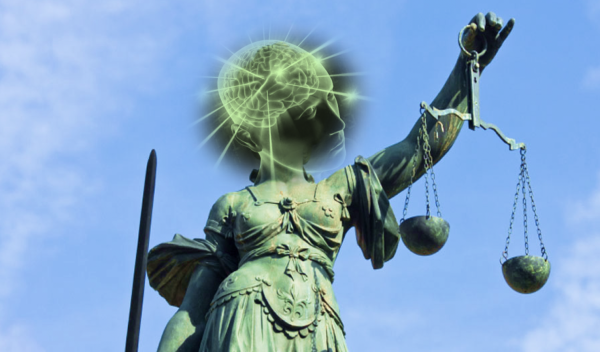Tech Friends and Enemies

How to sail between the cyborgs and the luddites.
When discussing our relationship with technology, for whatever reason—whether it’s due to aimless maximum engagement algorithms, the ruthless economic incentive structure of the global market, or just our own sheer inability to think critically in the face of incessant propaganda—we’re led to believe that there are only two possible paths from here: 1. Integration with Technology or 2. Luddism.
Those who advocate for the integration are more commonly known as transhumanists. Their trademark sleight of hand is to try to deny the legitimacy of a distinct middle ground, where we are able to maintain a balanced relationship with technology and nature, as has been the case for thousands of years. They attempt to blur the line between biology and technology by asserting that there is no distinction between biological and technological systems. They do this primarily by reducing complex biological systems purely to their material substrates. This hardline reductive materialist position is not only irrational, but threatens the very nature of humanity itself.
Biological systems are resilient, meaning that they grow through stress and adapt to their environment through the shared experience of time. This is fundamentally impossible for technological systems. From the bow and arrow to artificial intelligence and machine learning, all technological systems are designed to optimize for specific goals. By selectively choosing what to optimize for, the creators of technology imbue their personal philosophical assumptions and beliefs into the technology, shaping it, and in effect pre-programming it.
The Old Dream
Philosophically, the technologists are nothing new. They are post-Enlightenment, reductive materialists, with a dash of utilitarianism selectively applied to justify an increasingly explicit imperialist agenda. In more simple terms, they want to “sell everyone Product A because it has been found to statistically reduce Universal Problem B.” This framework is a vicious circle when run recursively, where new optimizations are made to justify new products, ad infinitum. They call this “incremental progress,” but, game theoretically, it’s an incentive structure tailor-made to invent new “problems.”
Imperialism in the modern age is waged through technology and cloaked behind seemingly laudable goals like “the reduction of human suffering.” The argument against utilitarianism and its downstream optimizations isn’t just “unknown unknowns,” “centralization increases tail risk,” “stress leads to growth,” or “imprecise measurement tools,” because the technologists will just respond by trying to factor these into their models. Ultimately, the technologist is naive about human nature, overestimates his ability to understand complex systems, and lacks reverence for the natural order.
Technologist philosophy is applied to the real world at the institutional level through optimizations in data analysis, financial accounting, and human resources. It ultimately drenches all of society in an obsessive drive to “measure” everything. We’re living through a perpetual revolution that is unable to conserve anything, not even humanity or nature itself, as the system desperately seeks out its next metric to optimize for. Goodhart’s Law, as this phenomenon is coined, is so resonant because it describes the nature of the disease, not just the symptoms.
There is an economic interest in reducing our problems to isolated variables. It’s marketable and easy to understand. Our system can’t help but produce “solutions,” like measuring carbon.
Ideological extremism, even among tech elites, is at times tolerated and encouraged insofar as it advances global capital consolidation (homogenization). As one anonymous observer has astutely pointed out, “they are trying to make what is sterile, fertile, and what is fertile, sterile”. Of course, this is impossible, and they will fail. But before they do, it looks increasingly likely that they will try to drag us, by hook or by crook, into a dystopian horror short.
Policy Options
In conservative circles, there seem to be two proposals to address the current predicament: 1. Capitulate to the “Cyborg Theocracy“: subsidize corporations in an attempt to buy loyalty as they pursue the development of more intrusive technological infrastructure such as 5g, advanced track/trace systems, mRNA biotechnology, artificial intelligence, and automation.
2. Restructure our relationship to technology and reimagine its aims: pursue a path of measured dependency, where technology is strategically pursued to preserve national sovereignty and individual autonomy, while maintaining the conditions for human flourishing.
Instead of shoving more investment and human capital through an inverted institutional incentive structure in a desperate attempt to turn traitors into patriots through subsidizing increasingly intrusive and inhuman technological infrastructure, we should be pursuing alternative technologies that offer the potential for asymmetric reward, and the opportunity to pivot strategically. The enemies of human flourishing are trying to bait us into a situation where in order to defeat our enemy, we must become him.
A New Frontiers Act, intentionally charting a more human path forward, would involve the pursuit of alternative technologies like cryptocurrencies, psychedelics, nuclear energy, and regenerative agriculture. On the policy side, it would include a reimagined approach to public health, incentivizing homeschooling, a focus on architectural restoration, and the development of strategic domestic infrastructure directly related to conserving the American Way of Life, instead of revolutionizing it. These technologies all offer strong economic incentives, and if properly conceptualized, could provide the basis of a policy framework for a middle ground, where we are able to maintain a balanced relationship with technology and nature while fostering the conditions for human flourishing. If we are able to create the desirable infrastructure, products, and experiences ourselves, we can wield them geopolitically.
Borg Mindset
Technology in its current iteration exists to promote the reduction of awareness, the erosion of experience, and the devaluation of nature into nothing more than a material substrate. The problem with the modern conception of “technology” is that it is being used to pry us out of our natural environment instead of working to further integrate us into it. Like all other animals, we are inextricable from the natural environment, and insofar as we aim to separate ourselves from nature, we will pay a steep biological price. True conservatism stems from understanding our ecological niche as stewards of nature. We need to rethink what role “technology” should serve in human societies and how exactly it can be used to cultivate human flourishing.
Technology should be used to further integrate ourselves with the natural order, not to distance ourselves from it. We occupy a specific niche within nature, and consequently, are an intrinsic part of the natural systems we exist within. We are connected to nature in a myriad of ways, some that we can measure, some that remain unmeasured, and perhaps even some that are unmeasurable. The irony of reductive materialism is that when taken seriously, it actually reveals the interconnectedness of nature. The pursuit of technology as a means of “progress” is a tragic misunderstanding of our role as stewards of nature. It is impossible to imagine “human flourishing” when divorced from nature, but there are people—venture capitalists, technologists, bankers, scientists, even “environmentalists”—who will try to convince you that this is possible, or even worse, that it is inevitable. They fundamentally believe that nature should be re-engineered to optimize for their own naive societal “goals,” because they truly believe that they can build it back better, then sell it back to you, in a subscription model. This is how you arrive at terraforming Mars. They don’t mean just Mars either, they mean the Earth, your physical body, and even your soul.
The idea that human flourishing can be augmented physically, mentally, and spiritually by integrating with technology is the most dangerous idea in the world right now. Modern man is insecure because he doesn’t know how the tools he uses work, can’t survive in nature, and can’t defend himself. The technologist’s perspective is best understood as a reaction against his subconscious understanding of his own physical and mental incompetence. Modern man’s denial of his own nature causes him his most suffering. The further he distances himself from the natural order, the more he lashes out in pain.
Understand that we are being led into a “cyborg theocracy” by on-the-spectrum nerds who grew up without even the slightest understanding or experience of the natural world. One famous technologist, now venture capitalist, recounts the horror of having to chop wood to heat his childhood home after his father decided to stop paying for gas one winter. These people simply cannot imagine that there are unmeasurable positive externalities present within natural processes. It is far more effective to diagnose these people psychologically than it is to face off against them in rational debate. Flourishing and Will cannot be characterized by reductive analytical techniques. Fulfillment achieved when detached from nature is financed with delusion.
The conflict in the modern human soul is that we are wired to mimic models who are institutionally wedded to inhuman and anti-instinctual goals. The misallocation of human ingenuity and creativity toward the construction of more sophisticated global economic and political control structures instead of the cultivation of raw aesthetic passion, trades the inspirational public display of human flourishing for chains and shackles that confine our potential to contrived ideology. The overwhelming prevalence and effectiveness of psychological operations has eroded modern man’s courage of his convictions to a point where he cannot be confident about even the most obvious tenants of nature, and until he can align himself with them, he will be in pain and confused. As technology evolves, so does our suffering and our incomprehension.
Contrary to the their public relations messaging, our elite oligarchs are actively destroying nature. They don’t actually believe in nor do they pursue the development of holistic systems that are in tune with the natural order. Complexity theory, which has gained popularity recently, resonates so much because it describes so clearly what we already instinctively know. Instead of appreciating the array of complex signals within nature, the technologist seeks to reduce them to individual observable elements. The system is fundamentally incapable of processing that some “thing” or complex relationship between “things” can be unmeasurable. This ability to self-reflect is the core difference between conscious and unconscious systems.
Take Back Control
We are not just dealing with “incompetence” or “institutional inertia.” There are specific people who want to make you feel that not only national sovereignty but local sovereignty and even individual sovereignty are untenable. The real “purpose” of technology, in its current iteration, is to gain total control over the global population, all the way down to your hormones and genes. They only want to automate your labor because it automates their profits and formalizes their control.
As global multipolarity continues to unfold, or at least the perceived appearance of it, products will become more expensive, but they will be valued more. This is a restoration of the natural order. As the price of physical land continues to increase, residential properties will become less transitory. Families will begin to take a multigenerational approach to ownership and property management. For most people, though, goods will become more transitory as they are priced out of markets and embrace various subsidies and gibs that solidify their serfdom. But for those who are drawn to something greater, our lives will change dramatically over the next few years. They may have chased us out to the frontier, but this has always been the case historically.
Don’t concern yourself with global outcomes, national statistics, or big data projections. Only pursue what you’re personally interested in. Don’t be anxious about what global planners are anxious about. It doesn’t matter what some NGO data analyst or bootlicking journalist deems “sustainable.” I can determine what is sustainable for my family, thank you. If we align ourselves with the natural order, everything will work itself out in the end. This is what real faith is.
The American Mind presents a range of perspectives. Views are writers’ own and do not necessarily represent those of The Claremont Institute.
The American Mind is a publication of the Claremont Institute, a non-profit 501(c)(3) organization, dedicated to restoring the principles of the American Founding to their rightful, preeminent authority in our national life. Interested in supporting our work? Gifts to the Claremont Institute are tax-deductible.
Republicans need a new mission. [As heard on Rush Limbaugh.]
Conservatives are right to challenge libertarians, but they must avoid Hawleyism.
Start with online speech coalition-building.




